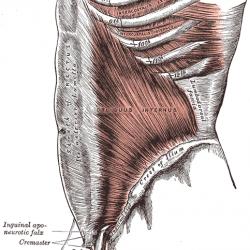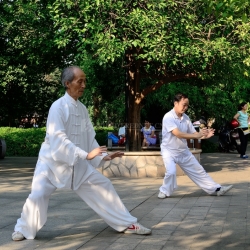Here's a heads up: children can have concussions too!
Children are spritely. They love to play, run about and live in their world of dreams. As a result, they often tumble, fall and hit their head while frolicking around. Apart from putting an icepack on their injury, parents need to pay attention to the subtle signs that may indicate a concussion. Many children reach the ER every year with telltale signs of mild traumatic brain injury (TBI). However, it takes some time for parents to understand what is really wrong since many people believe that only adults can get concussions.
It is entirely possible for children to get a concussion. Most of them feel well within a couple of weeks. A few unfortunate ones suffer from the Post Concussion Syndrome (PCS) symptoms for longer than a month. The recovery period depends on the child's health, the extent of the injury and the treatment he or she receives post-injury. You must take your kid to a brain expert to get tested for concussion immediately, if he or she complains of headaches, or if he or she acts out of sorts after the injury. Keeping an eye on them after a major injury is essential. It will help you understand the degree of influence the concussion has on your child's activities, emotions and behavior.
What can you do to help your child feel better?
Parents might need to make small changes to the child’s daily routine to facilitate the recovery process. Once your child shows signs of improvement, you can revert these changes and allow them to go back to their regular active lifestyle. It is imperative for a parent to follow the signs and symptoms of PCS to assess the extent of recovery of their children. Observe their behavior and use the signs to guide them to their normal life as soon as possible.
Keep a close eye on your child when they first return to their active life. If his or her symptoms do not worsen during regular activities, you should let them continue with it. In case their symptoms worsen, you should stop immediately and take them to the doctor. You must remember that each child’s mind is unique. Therefore, it is almost impossible to predict the outcome of an activity accurately.
There can be several reasons for a child’s delayed recovery from a concussion. Does your child have –
- A history of brain injury
- A history of concussions
- Family and social stressors
- A history of brain ailments or operations
- Learning difficulties or socializing challenges
These factors can delay the recuperation after a mild TBI.
How to facilitate recovery from concussion through regular daily activities?
According to most modern experts on concussions, keeping your child on complete bed rest can be counterintuitive. You should engage them in light activities to keep their minds occupied. Light activity can help them remain jovial and positive. Emotional status influences the recovery significantly. Therefore, following a routine like this can help your kid –
- Do not let them oversleep in the mornings.
- Reduce their daytime naps. It can aid proper restorative sleep at night.
- Help them get maximum nighttime sleep. If necessary, let them use a white noise source.
- If any activity does not worsen the symptoms, then that activity is excellent for your child.
- Send them to school on time once their nausea, pain and other physical discomforts subside.
- Give them food at regular intervals. Make sure they are on a balanced diet. Nutrition is vital to help children make a complete recovery.
- Do not let them spend endless hours watching TV or playing on their tablets. The blue light from these digital devices can worsen a headache and nausea.
There is a misconception about sleep and concussions. People will try to tell you to keep your child away after a mild TBI as much as possible. However, that can be harmful to the child's health and development. Children need tons of sound sleep. In case, you notice that your child is sleeping too much or having difficulty remaining awake during the daytime, contact your concussion expert immediately. Do not give them stimulants like coffee or caffeinated drinks to keep them awake.
Once your child shows considerable improvement from following the light activity routine, you can move on to moderate activities. Let them return to regular school routines including their extracurricular classes. If they want to have sleepovers or play dates, be sure to keep a close watch for any signs of sickness. You can consider the recovery complete once your child can complete all the tasks of their daily life including studying and playing without showing signs of excessive fatigue.
Why does your child have a better chance of recovery than most adults?
A child's mind has high plasticity thanks to its developmental stage. It ensures that healing after a mild TBI is much easier for children and teens than it is for the adults. No matter how your child incurred the concussion, you might see some of the signs we have already mentioned above. Not paying enough attention during the PCS period can result in long-term effects that can influence a child's performance in school. A concussion has the power to change the life of a person, but it is up to you to take charge of the situation. With the correct diagnosis and comprehensive cognition treatment, it is possible to reward your child with a happy and prosperous life even after a severe concussion.
What should you do if your child has a concussion?
Always seek the help of a medical expert with enough experience in neurology and concussion. Going to a pediatrician might not be enough, especially if your kid has been showing the PCS symptoms for more than a week. Chinese medicine tells us that the child's mental status, psychology, and emotional wellbeing heavily influences the outcome of a concussion. It is the responsibility of the parents to keep their children happy, and positive after the incident to facilitate fast recovery. It is only possible to do so with help from the right experts. If you believe that your child is showing symptoms of concussion, you should immediately speak with a concussion specialist for assistance.
More to Read:
Previous Posts:







